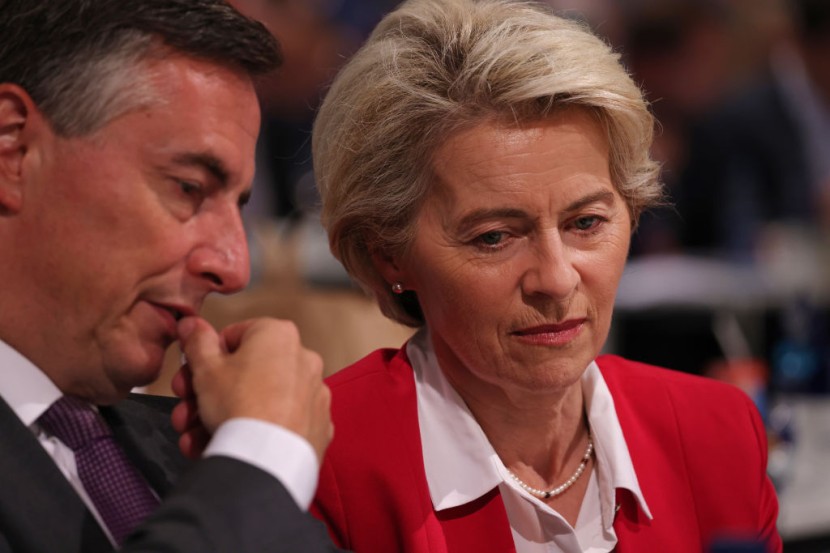
The European Union proposed a $140 billion windfall tax on some energy companies in an attempt to shield consumers from rising energy prices.
The European Commission on Wednesday proposed capping the profits of renewable and nuclear electricity producers and taxing the windfall earnings of oil and gas companies. The announcement comes as profits at power generators using wind, solar, and nuclear energy have ballooned because their tariffs are linked to the wholesale price of natural gas.
$140 Billion Windfall Tax
The price of the latter soared to a record high in March after Russia invaded Ukraine, now sitting at about 550% up on year-ago levels. Europe has already sanctioned Russian oil and coal exports after the beginning of the invasion, prompting Moscow to slash supplies of gas in return.
On Wednesday, EU Commission President Ursula von der Leyen said that the bloc would conduct a "deep and comprehensive reform" to decouple the cost of gas from the price of electricity. She said that companies are making revenues they have never accounted for or even dreamt of, as per CNN.
Von der Leyen added that it was wrong to receive extraordinary record profits benefiting from war and on the back of consumers. The EU Commission's proposals still need to be debated and adopted by EU member states before they go into full effect.
The bloc could potentially introduce a cap of $180 per megawatt hour on the electricity produced by renewable energy firms, said the Commission in a statement. Currently, Europe's benchmark wholesale gas price is $212 per megawatt hour.
Read Also: Vladimir Putin, Xi Jinping Meet! US Official Sends Strong Warning to China Amid Support for Russia
According to the Economist, to calculate what is excessive, the EU uses an average of the company's profits over the past three years as the benchmark. If in 2022, the profit is more than 20% higher than that benchmark, a third of anything above that threshold must be paid to governments.
Addressing Soaring Energy Prices
The choice of benchmark period is controversial since it includes 2020 and 2021, the years of the coronavirus pandemic when demand crashed and energy prices were very low. In a brief moment in April 2020, the price of oil was negative. The EU Commission's plan could face other opposition too, as an Italian windfall tax introduced in March 2022 is currently being challenged in court.
For renewable energy resources, calculating excess profits is more complicated as the cost of generating electricity varies depending on what energy is used. In European electricity markets, the price of power each hour is set by the most expensive power plant that is needed to meet demand.
While the system works relatively well, it was not built for this sort of crisis as high gas prices are coinciding with shortfalls in nuclear power generation, many reactors are closed for repair, and hydroelectric-power generation, due to drought.
Von der Leyen's plan does not include an earlier idea to cap Russian gas prices as EU countries are divided over whether broader gas price caps would help or harm efforts to secure winter supplies. Some diplomats are optimistic that deals could be struck at a meeting of EU energy ministers on Sept. 30, Reuters reported.
Related Article: Far-Right Swedish Party Wins Narrow Majority in Parliament in Historic Political Overhaul








